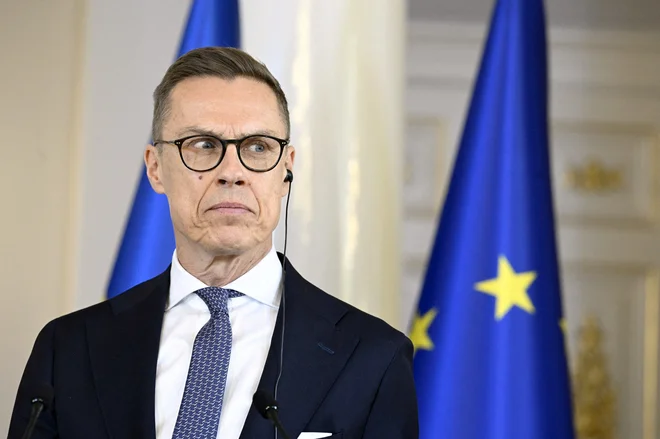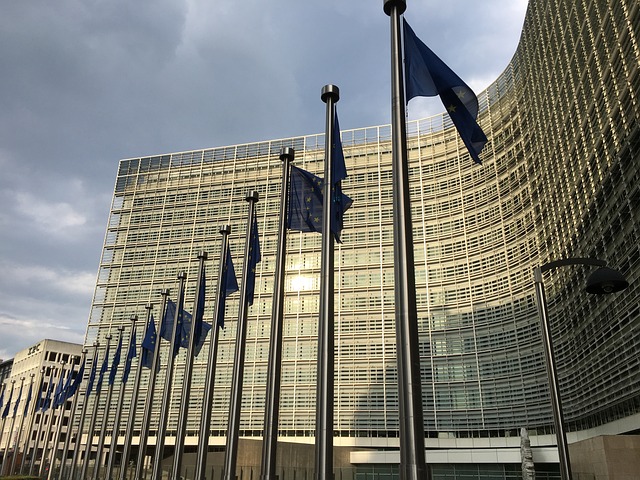Finland’s US no longer trusts and why it is important

Finns trust in the readiness of the United States of America, In order to defend Europe militaryhas fallen steeply, show the results of the latest research within the project Pedopollled by the University of Helsinki. After re -elected Donald Trump Only sixteen percent of Finnish people in Finland believe the US believes that the US would come to the aid of European countries in need, while thirty percent of the Finns said last year. This strong decline indicates A deep disappointing ally beyond the Atlanticreports Finnish public service YLE News.
The survey also reveals the lukewarm attitude of the Finns to the Defense Cooperation Defense Agreement (DCA) with the USA, which came into force last September. Only a good quarter of the respondents think that would be this agreement during Trump’s administration’s timen, which further indicates confidence in American assurances.
Geopolitical position and historical fears
Finland is located in an extremely sensitive geopolitical position. He shares with Russia more than 1300 kilometers long land border, which is the longest border of any EU member of Russia. This geographical proximity to the great and unpredictable neighbors is already historically dictated by Finnish security policy. Memories of the Winter War (1939–1940) and the Continued War (1941-1944) against the Soviet Union are deeply anchored in collective memory.
Finland is located in an extremely sensitive geopolitical position. He shares with Russia more than 1300 kilometers long land border, which is the longest border of any EU member of Russia. Photo: Alessandro Rampazzo/AFP
Although Finland is kept neutrality during the Cold Warit is always maintained strong defense and closely monitored the events in the east. The Russian full invasion of Ukraine in 2022 re -revived these historical fears and finally encouraged Finland (and Sweden) to abandon long -term neutrality and seek security in NATO membership. There are concerns that would Russia would have reached its goals in Ukraine Or if the conflict were frozen under its conditions, in the future it could aggressively direct against other neighbors, especially those who have joined the Western Alliance.
Deeply disappointed with the US
« In Finland’s government a kind of deep disappointing in relation to America, » he is for YLE News commented on the study leader, Hanna WassAssociate Professor of Political Sciences at the University of Helsinki. According to her, Finland has long been seen as a country with a special attitude towards the United States, but Trump’s threats and broader shifts in American foreign policy have undermined the faith of the Finns to help the US if necessary.
Analysts in Finland also notice the gap between public opinion and official policy. While politicians, including the president Alexander Stubbowho even encountered Trump in March, publicly emphasize the commitment of the US NATO and avoid direct critics, and their actions – such as strengthening their own defense with the announced rise in defense expenditure and planned exit from the Ottawa Treaty on the prohibition of anti -sand mines – indicate a more realistic assessment of the state.

While politicians, including President Alexander Stubb, who even met Trump in March, publicly emphasize the US NATO commitment and avoid direct critics, their actions show a different picture. Photo: Heikki Saukkomaa/Reuters
Professor Tuomas forsberg He even mentioned from the University of Helsinki the possibility that in Finland they may have cultivated « positive prejudices » about the US. It seems that, like the start of the Russian invasion of Ukraine, when public opinion quickly turned in favor of NATO membership, before the decision of the politicians, this time, this time, they also independently evaluated the changed security situation.
Trust in NATO and allies remains firm
Despite distrust of the United States as an individual country, the Finns maintain a strong faith in NATO as a whole. Almost three -quarters of respondents believe that Finland would receive assistance from other NATO members if it needed it. Also, more than sixty percent of the Finns support the sending of the Finnish soldiers to the second NATO ally, which is even slightly more than last year. This indicates that the Finns differ between the reliability of each superpower under a certain leadership and the basic commitments of the North Atlantic Treaty.
Supporting Finland’s membership in NATO remains high, but it has fallen slightly from last year’s record 81 percent to the current 76 percent. Hanna Wass notes that the long -standing consensus began to crumble, with the decline in support most visible in groups that were more skeptical of the Alliance – among women (71 percent of support compared to 81 percent of men), younger adults and lower educated. NATO’s strongest supporters remain the right -wing national coalition party Prime Minister Petterium Orpawhile support is the lowest among followers of the opposition left (less than half).

Despite distrust of the United States as an individual country, the Finns maintain a strong faith in NATO as a whole. Photo: Antti Aimo-Koivisto/Reuters
Despite the slight fall, Finland’s support is still slightly higher than the average in 32 NATO Member States, where it was seventy percent last year.
Clear support for Ukraine, AZ reservations
The Finns remain unwavering in the belief that Europe must support Ukraine. As many as 85 percent believe Ukraine should be supported until peace can be achieved under the conditions accepted by Ukraine itself. If there were a peace agreement, more than seventy percent of the Finns would be ready to support the referral of European peace forces to Ukraine as part of the so -called « Coalition of Marks ». However, only half of the Finns would support the referral of Finnish soldiers to Ukraine.
Most (more than half) think that peace, even if they demanded difficult concessions, would be better than the continuation of the war. Nevertheless, there is a clear border: as many as eight of the ten Finns are opposed to a peace agreement that would allow Russia to retain any occupied Ukrainian territory. Only thirteen percent would support such an agreement. The authors of the research describe this as an interesting tension between realism and respect for territorial integrity and the rights of Ukraine to self -determination.

As many as eight of the ten Finns are opposed to a peace agreement that would allow Russia to retain any occupied Ukrainian territory. Photo: Kevin Lamarque/Reuters
With regard to Ukraine’s future membership in NATO or EU, the Finns are more cautious: less than half supports entry if Ukraine did not meet the accession criteria. However, they believe that the US should not have the right to block Ukraine’s entry into NATO.
Because European security is largely based on the Alliance and the assumptions of American support and the commitment of Article 5 of the collective defense, Finnish doubts reflect broader uncertainty. If a key ally like the US becomes in the eyes of one of the most exposed members (such as Finland with its long border with Russia) unreliable, it inevitably raises questions about the strength of security assurances for everyone.





/s3/static.nrc.nl/images/gn4/data131312564-dea544.jpg)

